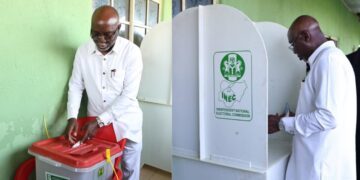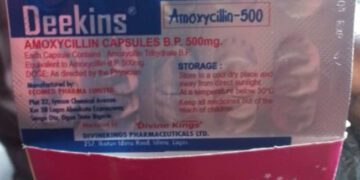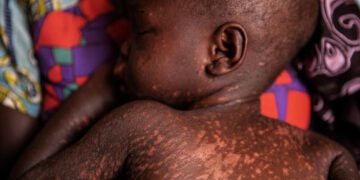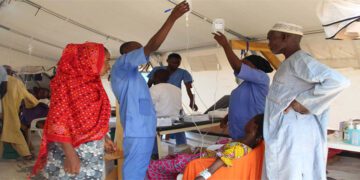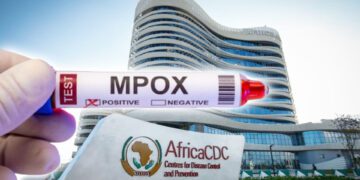According to the director general of the Nigeria Centre for Disease Control and Prevention (NCDC), Jide Idris the fatality rate of cholera-related cases in Nigeria has risen to 3.5 per cent cent in 2024.
The current death toll stands at 53 with another reported 1,528 suspected cases across 107 Local Government Areas (LGAs) in 31 states.
At a press briefing in the nation’s capital on Monday, 23 June, the NCDC boss announced the activation of the National Cholera Multi-Sectoral Emergency Operations Centre (EOC) to coordinate a wider and more active response to the epidemic. Noting that experts who conducted a risk assessment in the past week placed Nigeria at high risk of increased cholera transmission and impact.
The Minister of State for Environment, Iziaq Salako also in a statement yesterday advised Nigerians to avoid locally made drinks like kunu, zobo, and fura to guard against the spread of the disease.
He said “Avoid locally prepared drinks like kunu, zobo, fura da nono, koko, and fruit juice among others except it is certain that the preparation was done hygienically and safely. Wash hands regularly with soap under running water, especially after using the toilet, cleaning a child who has gone to the toilet, before preparing food, before and after eating, and after playing with animals.”
Notably, in Lagos State, the number of recorded deaths has increased to 29, with 30 other patients hospitalised, says the state’s Health Commissioner, Akin Abayomi. 579 suspected cases have been recorded with 43 confirmed through laboratory analysis, just as he attributed the rising death toll to not presenting cases at the hospital earlier.
Abayomi said, “Most of these deaths were caused by patients presenting very late at a stage where we could not resuscitate them because they had severe rehydration and many patients were brought in dead,”
More so, nearly a fortnight after the outbreak, the state authority is yet to ascertain the specific source that caused the sudden spike in cases across the state.
However, Abayomi said in a briefing on Monday “So far, we have not been able to identify a source, but investigations are continuing because we want to see if we can identify a particular source or sources. But moving forward, we are going to keep active surveillance around our water sources and the distribution of beverages in Lagos State”.
He also aknowledged that cases of severe gastroenteritis have been reported in communities around Eti-Osa, Lagos Island, Ikorodu, and Kosofe Local Government Area of the state.
In other states like Ogun, its Commissioner for Health, Tomi Coker, disclosed that the state has recorded one death and 25 suspected cases (9 of which has been confirmed as cholera as of Tuesday, 25 June 2024) across seven LGAs: Adoodo/Ota, Remo North, Odeda, Sagamu, Ijebu North, Ewekoro, and Obafemi Owode.
Consequently, the NCDC is expanding the scope of the country’s response with its DG, Jide Idris positing that the activated EOC will be the central hub for coordinating and directing the country’s response to the outbreak.
He said the main focus is “Supporting affected states, facilitating rapid communication, data analysis, and decision-making processes, mobilising resources, expertise, and support from partners and stakeholders at all levels of government. An Incident Manager has been appointed to oversee the day-to-day activities of the EOC, which will focus on surveillance, case management, oral cholera vaccine distribution, coordination, infection prevention and control, logistics, support, and research,”.
Adding that before the activation of the EOC, the NCDC had prepositioned medical supplies, provided onsite support to affected states, conducted training for laboratory scientists and community mobilisers, and distributed public awareness materials. The agency has also provided offsite and onsite support to Lagos and Ogun States while following up on daily reporting and progress with response activities.






























